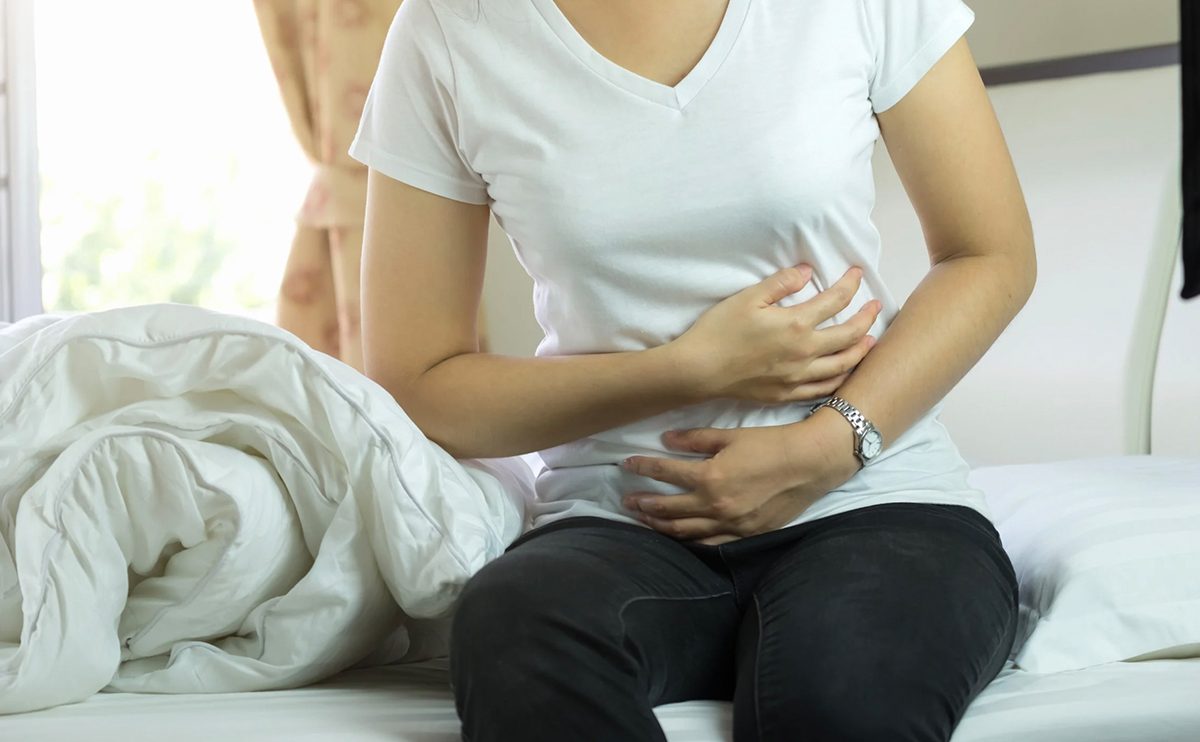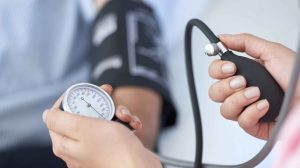Diarrhea is a condition of watery or watery stools with a frequency that is more frequent than usual. What is diarrhea, its causes, symptoms, and treatment
Understanding
Diarrhea is a condition in which the stool is watery or watery with a frequency that is more frequent than usual.
Diarrhea usually appears with a single symptom or is associated with other symptoms, such as nausea, vomiting, abdominal pain, or weight loss.
Generally, diarrhea is caused by consuming food or drink that is dirty and contaminated with microorganisms.
Diarrhea is usually more common and does not last long, no more than 2-3 days.
When diarrhea lasts more than a few days to weeks, it usually indicates that there is another serious problem.
For example, irritable bowel syndrome (IBS), persistent infections, celiac disease, or possibly inflammatory bowel disease.
Common diarrhea can be treated with over-the-counter medications.
However, in special cases, diarrhea can last for weeks, and must receive special therapy by the treating doctor.
The situation of Diarrhea in Indonesia
Diarrheal disease is still a major health problem in developing countries, including Indonesia.
This is due to the high morbidity rate (comparison between sick and healthy groups of people in a population) and high mortality.
According to the 2018 Riskesdas, the prevalence of diarrhea based on the diagnosis by health workers is 6.8 percent.
Meanwhile, based on the diagnosis of health workers or symptoms that have been experienced by 8 percent.
The age group with the highest prevalence of diarrhea (based on the diagnosis of health workers) was in the 1-4 years age group of 11.5 percent and infants by 9 percent.
The elderly age group over 75 years is also a group with a high prevalence (7.2 percent) in Indonesia.
This data was obtained from the 2019 Indonesia Health Profile released by the Ministry of Health of the Republic of Indonesia.
Reason
Diarrheal disease generally occurs when fluids from food cannot be absorbed by the intestines properly, or there is too much fluid secreted into the intestines.
Normally, the large intestine will absorb liquid from the food we consume and leave semi-solid feces.
If the liquid from the food is not absorbed properly, the stool will become watery or even liquid.
This condition is influenced by many factors so diarrhea can last a short or long time.
- Short Lasting Diarrhea
Usually, this type of diarrhea is a symptom of an intestinal infection, which is caused by:
- viruses, such as rotavirus
- bacteria, such as Campylobacter
- parasites, such as Giardia intestinalis
- Other causes of diarrhea include psychological factors (feeling anxious), consuming alcohol, food allergies, appendicitis, or side effects of drugs.
It can be concluded that for the prevention of diarrhea, you can maintain food hygiene.
- Long Term Diarrhea
Long-term diarrheal conditions can be caused by:
- colon syndrome
- celiac disease, a disease that causes the body to reject the protein gluten
- Crohn’s disease, inflammation of the lining of the digestive system
- chronic inflammation of the pancreas
- bowel cancer
- Side effects of removing part of the stomach (gastrectomy)
Symptom
In each patient, the symptoms of diarrhea can vary.
Some people have very loose stools, while others have loose stools.
However, there are some symptoms that are often associated with diarrhea. These symptoms include:
- stomach cramps or pain
- stomach feels bloated
- nauseous
- vomit
- fever or chills
- blood in the stool
- stools have mucus
- a feeling of urge to defecate that is difficult to hold
If you are an adult, see your doctor immediately if you experience any of the following.
- diarrhea lasts more than two or three days without improvement
- have signs of dehydration
- accompanied by severe abdominal pain or pain in the anus that is quite severe
- bloody or black stools that are quite a lot
- have a fever with a temperature above 102 F (39 C)
Generally in adults, diarrhea will recover within 2-3 days. In children, recovery time is longer, ie 5-7 days.
If diarrhea lasts more than one week or the condition gets worse, consult a doctor immediately.
Also, watch for signs of dehydration during the recovery period.
Diarrhea and Dehydration
Excessive excretion of fluids through feces coupled with loss of appetite can result in dehydration.
This condition must be treated immediately because it can be fatal.
Dehydration itself occurs more easily in children. This is because children’s resistance to dehydration is lower than adults
Symptoms of dehydration in children include:
- rarely urinate
- dry mouth or crying without tears
- bloody, red, or black stools
- often appears drowsy and unresponsive
- looks sunken in the eyes or stomach
- if the pinched skin doesn’t come back (decreased turgor)
There are also signs of dehydration in adults, including:
- tired and powerless
- loss of appetite
- nauseous
- Dizzy
- tongue feels dry
- eyes look sunken
- muscle cramp
- heartbeat
Diagnosis
Generally, diarrhea can last up to a week and can get better without any treatment.
However, if your condition is severe enough, consult a doctor immediately.
To find out if the patient has diarrhea and its causes, first, the doctor will collect information about the symptoms they are experiencing.
The doctor will ask about the texture of the stool, the frequency of bowel movements, and the patient’s daily habits.
Apart from that, you must also inform the doctor if there are other accompanying symptoms (high fever), consumption of unusual foods, psychological factors, or certain medications that may be being taken.
This examination can be in the form of an analysis of stool samples, blood tests, and rectal examinations. Here’s an explanation.
- Stool Analysis
The doctor will ask you to submit a stool sample for analysis. This aims to identify infections that may occur.
This analysis is done if you have had diarrhea for more than two weeks, there is blood or pus in the stool, or there are other accompanying symptoms.
In addition, this examination also needs to be done if you experience diarrhea after being hospitalized or because of a weak immune system (HIV sufferers).
- Blood Test
The doctor will ask you to do a blood test if there is a suspicion that diarrhea is a symptom of another disease.
For example, blood test results show inflammation. This is one of the symptoms of inflammatory bowel disease.
- Rectal Examination
If the patient is over 50 years old or has diarrhea that is difficult to heal, the doctor will perform a digital rectal examination.
The way to check is to insert a finger into the rectum to check for abnormal conditions.
This examination aims to diagnose diseases related to the rectum and intestines.
- Additional Examination
The doctor may also suggest the following examinations to help conclude the diagnosis:
1. Sigmoidoscopy
Inserting a sigmoidoscope (a thin, flexible tube that has a camera at the end) into the rectum to the intestine.
2. Colonoscopy
The procedure is similar to a sigmoidoscopy, but a larger tube (colonoscope) is used to examine the overall condition of the intestine.
Treatment
Symptoms of diarrhea will generally go away on their own, usually up to a few days, without the help of any medication.
In certain cases, diarrhea can last longer depending on the cause.
You can do the following things to relieve the condition you are experiencing:
1. Increase fluid intake
When you have diarrhea, you should consume more fluids, especially if you are vomiting.
This is needed to avoid and treat dehydration.
Drink little by little but often. Better to get a little liquid than nothing.
If fluid intake is sufficient, urine will be light yellow or almost clear.
Avoid giving fruit juice or soft drinks because it will make diarrhea worse.
2. Eat Soft, Enough, and Nutritious Foods
When diarrhea lasts, experts recommend that you do not eat solid food first, at least until you are able to eat normally.
Eat smaller portions than usual but more frequently, ie 4-6 times a day. Also, avoid fatty and spicy foods.
Do not give solid food to children if they are dehydrated. Wait until they drink enough fluids.
New food can be given after they no longer show signs of dehydration.
If the child is not dehydrated, feed as usual.
3. ORS liquid
For sufferers of diarrhea who are prone to dehydration, the doctor will recommend using ORS as a medicine for diarrhea.
Those of you who are physically weak, over 60 years old, and have a serious medical history are strongly advised to consume ORS.
ORS diarrhea medicine is sold freely in pharmacies. You just mix it with water.
The function of the ORS diarrhea medicine is to replace salt, glucose, and other important minerals that may be lost when you are deficient in fluids.
For children, the doctor will suggest ORS if there are signs of dehydration.
ORS can be given every time the child has a bowel movement. The amount depends on the child’s weight.
4. Use of Drugs
Diarrhea medicine can use anti-diarrheal to reduce the symptoms of diarrhea and shorten its duration.
However, actually, diarrhea medicine is not needed because the body’s immune system will fight it naturally.
The most commonly used anti-diarrheal drug is loperamide because it can reduce bowel movements so that more fluids will be absorbed.
Do not take anti-diarrheal medication if diarrhea is accompanied by other symptoms, such as high fever and blood or pus in the stool.
It is best if you immediately consult a doctor.
5. Antibiotics or Antiparasitic
Usually, the doctor will recommend the use of certain drugs if the cause of diarrhea is confirmed by bacteria, or parasites, or if the diarrhea is very severe.
Antibiotics or anti-parasitic drugs can help treat diarrhea caused by bacteria or parasites.
If a virus is the cause of your diarrhea, antibiotics will not help.
It is highly not recommended to use antibiotics or antiparasitic if the cause of diarrhea is not known with certainty.
Antibiotics will not work if the cause of the infection is a virus.
6. Pain Reliever Drugs
Painkillers cannot treat diarrhea. However, giving paracetamol or ibuprofen can help relieve symptoms that accompany diarrhea, such as fever and headaches.
Make sure you give medicines according to symptoms and follow the instructions for use.
7. Treatment of the Main Condition
If you have previously been diagnosed with certain diseases that can cause diarrhea, it is best to treat those diseases first.
This will relieve the condition of the diarrhea. If the main condition is not handled properly, diarrhea as a symptom will continue.
Prevention
The majority of causes of diarrhea are infections, such as bacterial, viral, or parasitic infections. That’s why, here are some ways to prevent diarrhea that can be done.
- Frequent Hand Washing
Wash hands before and after preparing food.
Wash your hands after handling raw meat, touching doorknobs, using the toilet, changing a baby’s diaper, sneezing or coughing.
- Wash Hands with Soap or Alcohol
When washing your hands, try to use soap. Rub your palms together for at least 20 seconds.
Use a 60-70 percent alcohol-based hand sanitizer ( hand sanitizer ) if you can’t wash your hands with soap and water.
- Watch What You Eat
Consume food that is hot and well cooked to reduce the risk of contamination through food.
Avoid raw fruits and vegetables, and avoid raw meat and undercooked meat to prevent transmission of infections that cause diarrhea.
- Watch What You Drink
Pay attention to the integrity of the packaging (sealing) when you consume bottled water, soda, beer, or wine served in the original container.
Avoid drinking tap water from sources with unclear hygiene levels.
Drinks made with boiled water, such as coffee and tea, may be safer.
Remember that alcohol and caffeine can also make diarrhea and dehydration worse.
- Vaccination
You can help protect your baby and little one from rotavirus infection, the most common cause of viral diarrhea in children, with one of two approved vaccines.
Ask your pediatrician about the vaccination.
Complications
Diarrhea that is not treated properly and continues continuously can cause the following complications.
- Life-threatening dehydration. Dehydration is one of the most common complications and the consequences are quite fatal.
Dehydration is especially dangerous in children, older adults, and those with weakened immune systems.
- Malnutrition often occurs in children aged less than 5 years (toddlers). This can have an impact on the decline in the child’s immune system.
- Sepsis, which is an infectious process that extends to the blood circulation and leads to failure of the body’s vital organs, such as the lungs and kidneys.
- Electrolyte imbalance occurs due to decreased electrolyte levels and is wasted along with the fluids that come out when diarrhea.
Symptoms can range from extreme weakness to loss of consciousness to seizures.












Add Comment